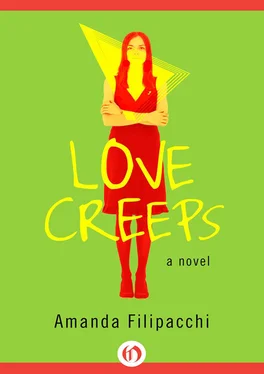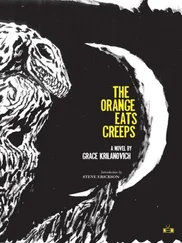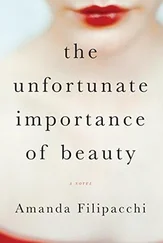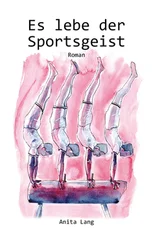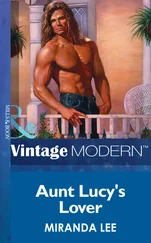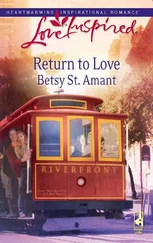Roland often said about her, “She gets me.” He loved himself for loving her. A guy like him should normally never be evolved enough to be attracted to her, nor be attractive to her. She was smart. She was strong. She did not wear makeup. And she even had a touch of masculinity about her. She was a banker. He was intoxicated.
Alan gave up acquiring fake quirks. He tried to forget about romance and decided to redirect his attention toward small domestic matters, like cleaning his apartment and finally getting rid of his white easy chair. He put it out on the sidewalk for the garbage people to take during their next round. It was not an easy thing to do, emotionally. Since he had always identified with his chair, he almost felt as if he were putting himself out with the trash, throwing himself away. Sometimes a small sadness can distract us from a large sadness more effectively than a small joy can.
Hoping to distract himself from the small sadness, he went grocery shopping. On his way back, he saw a taxi parked near his white easy chair, and its driver was hauling his chair into the trunk with the help of a pretty girl. The girl was taking his chair. She found it desirable. Alan stood there with his plastic bags full of toilet paper and frozen dinners, looking at the spectacle. The girl was slapping dust off her hands. She turned and saw him. She held his gaze. She did not exactly smile, but had a pleasant expression nevertheless. And then she ducked into the cab, which drove off.
Alan wasn’t sure what hit him. Or rather, he felt as if something had almost hit him but had missed. He had just been handed, by fate, an opportunity to experience one of those magical romantic moments, and he had let it slip by. He could have approached the girl and told her she was holding his chair. Even if it hadn’t been his chair, it would have been a good line. But since it was his chair, it was an excellent line. That’s my chair. You like my chair. You are taking my chair. No one else wants or likes my chair. But you do. We have the same taste in chairs.
He went up to his apartment. He slammed the front door, went straight to his couch, and sat there, with his plastic bags, staring at the empty space that used to contain his white easy chair. He buried his face in his hands.
He should have told her that was his chair. Maybe she would have admired his taste.
A few days later, Roland and his soulmate the Translator, Victoria, were having dinner with Lynn, Alan, and Ray. Lynn’s soulmate hadn’t been free to join them, but was planning to meet up with them afterward.
Midway through the meal, Lynn was noticing how happy Roland seemed. A series of thought connections made her ask him if he’d ever gotten his refill. They’d all been meaning to ask him — especially Ray, with his curiosity disorder — but kept forgetting.
Roland was speechless, stunned that Lynn knew about his cyanide. Then he realized she didn’t know. He recalled telling them in the ocean that he wished he’d gotten a refill, to ease his oceanic suffering. That’s all he’d said — a refill — without specifying of what or in what, without mentioning cyanide or his locket.
He sighed with relief. “Yes, I did. But I’ve lost interest in that now.” He paused, wanting to appear as though he were changing topics. “Oh, by the way, look!” He opened his locket. Inside was a picture of Victoria.
They murmured with appreciation.
“What was in there before? You never did show us,” Alan said.
“None of your business.” Roland snapped his locket shut.
“Yes, your interest is much appreciated,” translated Victoria, “but men who treat love wonderfully seriously aren’t always ready to reveal the inside of their locket.”
Later in the meal, they touched lightly on their ocean experience. Victoria already knew the story from Roland.
Ray asked them if they all still regretted having committed their semisuicide.
They all nodded.
Ray said with frustration, “How can you guys continue to regret it, when in fact you have to admit it gave you one of your greatest pleasures in life?”
Roland scowled. “Which was what?”
“Coming out of the water,” Ray said.
“What kind of freak would come up with such ideas?” Roland said.
“It’s true, only mad geniuses come up with this sort of stuff,” Victoria reworded.
“Thank you,” said Ray, charmed.
“Victoria is incredible,” Alan said to Roland. “She not only picks up your droppings but wipes up your messes. You definitely don’t deserve her. I don’t know how you got so lucky. I’ll never be that lucky. I was almost lucky, the other day. For a second, I had a chance to meet this amazing girl in a very romantic way in the street, but I didn’t grab the opportunity, and now it’s lost.”
“You’ll get other chances,” Lynn said.
“Not like this one. This felt … unique.” Alan shook his head. “Things aren’t going so well for me right now. And it doesn’t help that I’ve spent all my money on precious and semiprecious stones.”
Roland said, “No one understands better than I the urge to leave a little something behind. But Alan, I left paper clips, buttons, and pennies, not diamonds, sapphires, and opals!”
Alan shrugged. “I’m less cheap.”
“Better cheap than whine about it afterward,” Roland snapped.
“Yes,” elucidated Victoria, “one of the disadvantages of being a supergenerous person like you, Alan, is that if your gifts happen not to be appreciated, your suffering and loss are greater.”
“And plus, you didn’t have to leave the precious stones behind!” Roland said to Alan.
“I didn’t have someone to pick up after me like you do, Roland.”
No one spoke.
Alan finally added, “Oh, I don’t even care about being broke. I don’t know why I mentioned it. I’m just sorry I let that unique romantic opportunity slip through my fingers.”
“I’m sure it was unique,” Ray said. “But each one is unique.”
“Perhaps,” said Alan. “But this one felt more unique.”
The days were passing monotonously for Alan. He was depressed and lonely. It didn’t help that removing his chair had left a hole in his living room, a void which Pancake, Bugsy, Toto, and Fuzz-fuzz were only partly able to fill. Alan had trouble getting used to that hole. It kept reminding him of the special opportunity he had failed to grab. He decided he would buy a new chair, another white chair, to plug up the hole and help him stop thinking of the girl he could have met. But he wasn’t sure the new chair would do much good, because in his heart, he’d know it was not the same chair.
He told himself he’d pull through this bad period. The pets were a help. And he was forcing himself to go out more, meet new people. He would turn his life around. He had done it before; he believed he could do it again. There was a new beading class he had his eye on and was keen on taking. If he never found an ideal mate, or even a vaguely adequate mate, he could still be happy. If he worked at building a rich and fulfilling life for himself, happiness would come eventually, even if a soulmate didn’t.
One late afternoon, his doorman buzzed him. “There’s a woman down here who wants to see you.”
“Who is it?”
“She says you don’t know her, but that she has something for you.”
He took the elevator down, not wanting to let any strange woman into his apartment.
In the lobby stood the pretty girl who had taken his chair.
Approaching her, he said, softly, “You have my white elephant.”
She smiled, looking puzzled. “No, your driver’s license. It was in the cushions of your chair. I wasn’t sure how long ago you lost it and if you had already gotten a new one. I didn’t know if I should even bother giving it back to you.”
Читать дальше
